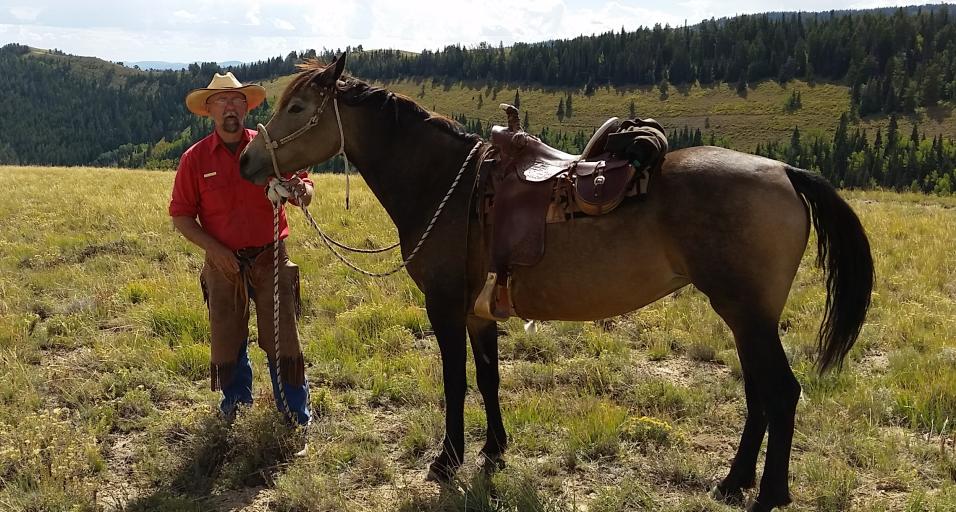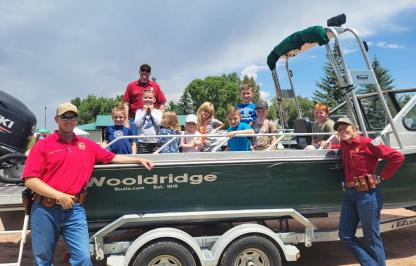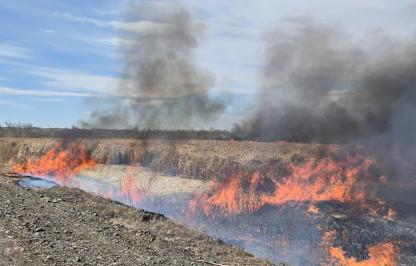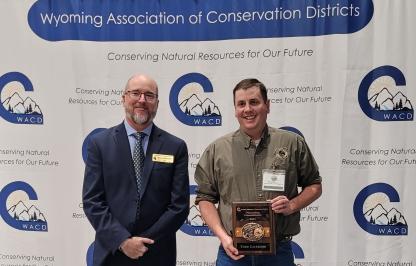Green River Region Wildlife Biologist Coordinator Mark Zornes has retired after 23 years with the Wyoming Game and Fish Department.
Whether he checked you and your game at a check station, in the field or regional office or you talked with him on the phone, chances are Zornes left you with a lasting impression. A native of rural Appalachia, he received a bachelor’s degree in wildlife management from Arkansas Tech University and a master’s degree in wildlife science with a minor in range science from New Mexico State University.
His career spanned more than 27 years from his start as a wildlife biologist in Mountain View in 1993, to a seasoned wildlife management coordinator in Green River. He also worked as a damage aide for the Green River Region in 1994, a staff biologist in the Biological Services Section in Cheyenne in 1995-96, and a wildlife biologist in Wheatland from 1997-2002. He received two Game and Fish Peer Recognition Awards, one from the Laramie Region in 2002 and one from the Green River Region in 2008. He was also recognized for the instrumental role he played in the successful beginning of the Private Lands Public Wildlife Program, now called Access Yes, in 1999. From 2003-06, Zornes worked for the Arizona Game and Fish Department as their trophy game/furbearer and small game/upland game bird biologist and received their Commendation for Excellence Award in 2005.
“Mark is a character and people really enjoy talking to him,” said Green River Regional Wildlife Supervisor Todd Graham, “He always made time to talk to people and answer their questions.”
Years of teaching hunter education and giving presentations for the State Museum Summer Exhibit “Experiencing Wyoming, Then and Now” are examples of his commitment to educating others.
“Through the years, Mark received numerous commendations for sharing his vast knowledge of the wildlife resources with which he was entrusted,” Graham added.
Zornes was a biologist through and through. Beyond his knowledge of wildlife and the lands they occupy, he understood the relationships of different species across the landscape, evident in his work to protect habitat and the wildlife that depend upon it. From environmental assessments, to migration corridors hewas always a straightforward advocate for wildlife. For that, he earned the respect of many. He worked on internal and external working groups and internal committees further demonstrating his knowledge and abilities and the respect of his peers.
As a wildlife manager, Zornes understood the balance between biology and human dynamics. He handled the management challenges that come with private land in eastern Wyoming and the public land of western Wyoming. Despite the contrast, he has been successful in managing numerous species of wildlife in both while never losing sight of what matters most, “Conserving Wildlife and Serving People.”
After retirement, Zornes plans on building saddles, bows, muzzleloaders and axes. In his free time he hopes to do more hunting and fishing and spend time with his grandkids. When looking back on his career he stated, “It was an honor to serve.”
Green River Wildlife Coordinator Mark Zones retires




